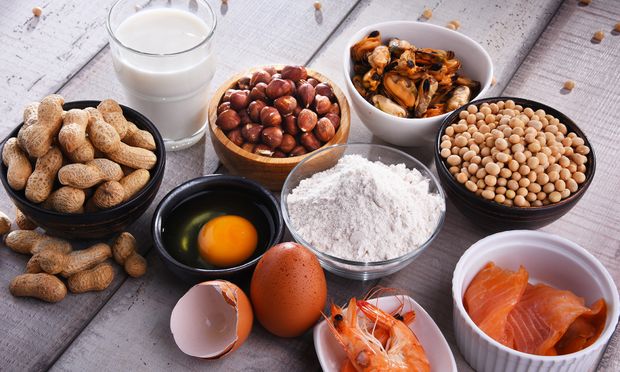February is American Heart Month. It’s the shortest month of the year, but this topic should extend to every day of our lives. I’d like to explain a little about how what we eat affects our hearts. I even have a few tips on healthier habits that won’t make you miserable.
Heart Disease is extremely common, can be dangerous, and is a lot more than just one problem. Heart disease is a category that includes:
- Hardening of the arteries (Atherosclerosis)
- Heart attack
- Stroke
If two people have different medical conditions they could both technically have heart disease.
What are some things that we can prevent heart disease?
Understanding Cholesterol
Cholesterol is a waxy substance our bodies use to do some amazing things. It makes hormones and vitamin D and it aids in making digestive fluids. Any food that originated from animals contains cholesterol including all meats, eggs, and cheese. There are TWO kinds of cholesterol and this can be tricky for some.
HDL is “good” cholesterol. This type of cholesterol prevents hardening of the arteries and formation of plaques.
HDL’s evil twin brother, LDL, is the “bad” cholesterol. This type of cholesterol likes to form plaques that can form blockages.
Our liver also makes its own cholesterol depending on the type of fats we eat.
Bottom line: We want to eat foods that make that “good” HDL cholesterol high, and keep “bad” LDL cholesterol within normal limits.
Good Fat vs. Bad Fat
Trans Fats – Trans fats are mostly man-made. You may find them listed as “partially hydrogenated oil” in the ingredient lists. Trans fat is the worst because it raises your bad cholesterol and lowers your good cholesterol. That’s the opposite of what we want. Fried foods, store-bought snack cakes or cookies, and some kinds of margarine contain trans fat.
Saturated Fats – Saturated fats are usually solid at room temperature and found in foods like the fatty marbling in steaks, butter, and coconut oil. Eat this fat in moderation. A large intake of saturated fat can increase your bad cholesterol over time. The American Heart Association recommends limiting saturated fats to only 5 – 6% of calories. In a 2,000 calorie diet that is about 13g for the whole day. Many types of meat can be high in saturated fat. Look for lower fat options, called lean cuts of meat. Lean cuts include things like pork loin, reduced fat ground beef, or chicken breast with the skin removed.
Monounsaturated and Polyunsaturated Fats – We want these unsaturated fats in our diets! Unsaturated fats can help lower bad cholesterol and may help raise our good cholesterol (win-win!). Try to replace foods that have trans fat or saturated fats with foods that have unsaturated fats. Foods high in unsaturated fats are generally from plants, with the exception of fatty fish because omega‑3 fats are a type of unsaturated fat. Olive oil, walnuts, flaxseed, and salmon contain unsaturated fats.
Sneaky Sodium
Up to 90% of Americans are eating too much salt every day and that can be hard to manage when there is sodium in just about every packaged food. I’m not talking about the salt shaker. Pre-packaged products we buy at the grocery store or foods in restaurants can be packed with sodium. For some people, eating extra sodium raises their blood pressure. When dining out ask for your meal to be prepared with less or no salt. Compare brands at the grocery store for lower sodium content or purchase canned goods that say “NSA” or No Salt Added.
Added Sugar
Foods like fruit or milk contain natural sugars. The sugar found in lattes, cinnamon rolls, candy, fruit gummies, or soda is added. These added sugars include any sweetener added to foods. Table sugar is obvious, but the more “natural” sweeteners like honey or maple syrup are still considered added sugar. Extra sugar means extra calories, and since sugar is not something that contains useful vitamins or minerals those extra calories are unnecessary or “empty”. These extra calories over time can lead to weight gain and also prevent us from eating foods that are more nutritious.
10 Things You Can Actually Do for You Heart This Month:
- Try more recipes that use leaner meats such as ground turkey, skinless chicken breasts, or pork loin
- Switch from full-fat cheese and dairy to reduced fat or 2% options
- One or two days a week swap your morning latte or frap for unsweetened tea or coffee with milk
- Try swapping seasoning salt or lemon pepper seasoning for a salt-free flavoring like Ms. Dash
- Make water a priority over any other beverage such as sodas, sports drinks, or energy drinks
- Increase your intake of fruits and veggies – start small with just an extra serving each day
- Try and get moving after sitting for long periods of time, even if it is for 5 minutes
- Cook one more meal at home each week
- Know your numbers! Speak with your doctor about your cholesterol lab values
- Try adding in a few meatless meals each month
Health Topics:







